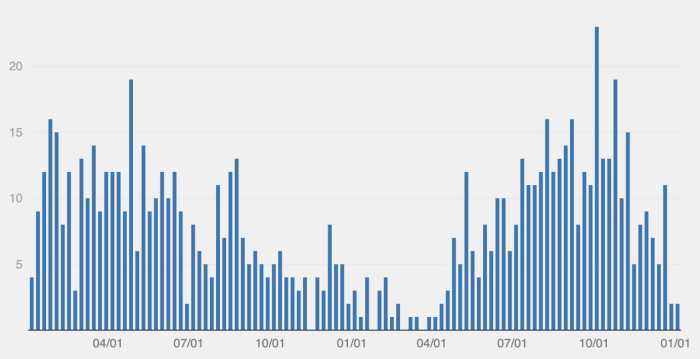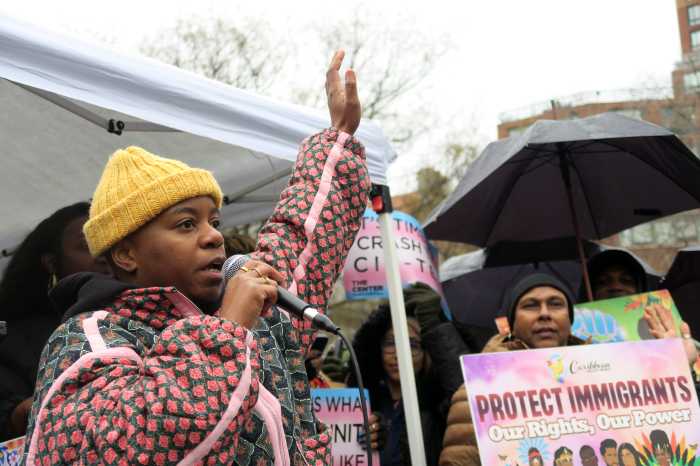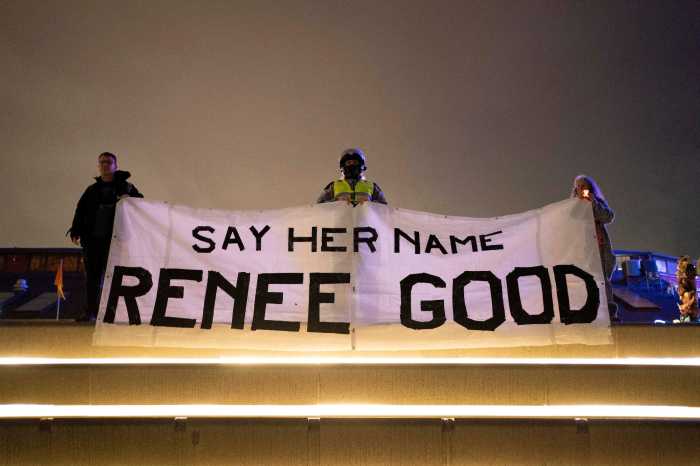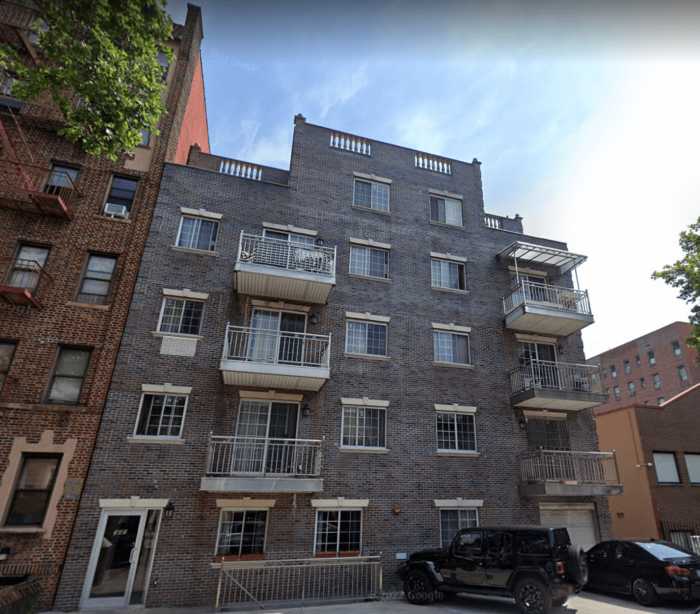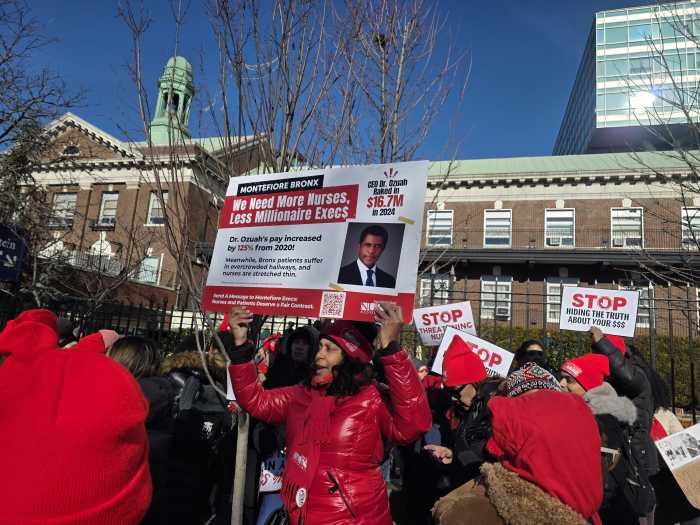Reverend Beth Stroud, former LGNY editor, loses final Methodist Church appeal
Eleven months after a Methodist Church court voted 7-6 to withdraw her ministerial credentials, Reverend Irene Elizabeth “Beth” Stroud, the 35-year old associate pastor of Philadelphia’s First United Methodist Church of Germantown, has lost her final appeal.
The defrocked minister’s case was presented to the United Methodist Judicial Council, the church’s highest court based in Houston, on October 27. The Council’s nine multi-racial, multi-national members, elected by the UMC General Conference, consist of both clergy and congregants. Each side had 30 minutes for oral arguments, after which one Judicial Council member asked a single question. The court posted its ruling online on October 31 at 8 a.m.
Stroud argued that the Methodist Constitution’s ban on homosexual clergy runs counter to other Methodist laws. She cited the Methodist Book of Discipline, which says: “Inclusiveness means openness, acceptance, and support that enable all persons to participate in the life of the church, the community and the world. Thus, inclusiveness denies every semblance of discrimination.” That Book also declares that homosexuals are “individuals of sacred worth,” “God’s grace is available to all,” and “certain basic human rights and civil liberties are due all persons.”
Speaking by phone shortly after the verdict was posted, Stroud said that it was “a very sad day.”
“You think you can be prepared for anything emotionally,” she said, “but I’ve been tearful on and off while sharing the news with my family and congregation.
“There is one silver lining,” Stroud added. “The same week we went down to Houston to appeal, my partner Chris and I completed our certification as foster parents. When we get a placement, I’ll take three months of maternity leave as a new foster mother.”
Stroud will remain serving her Germantown congregation as a lay pastor while continuing to work for change.
“I believe that my denomination has a capacity to change,” she shared. “It will. But it’s going to be a long road.”
Stroud knew at the time she came out to her congregation in 2003 that the decision might result in loss of her ministerial credentials. Even as she struggled to come to terms with the Judicial Council’s final decision, she affirmed her choice of action.
“Coming out is the best decision I’ve ever made,” she said. “The freedom and joy I feel being open and honest about my relationship is worth the sacrifice.”
Beth Stroud was initially charged with violating Paragraph 304.3 of the UMC’s 2000 Book of Discipline, which says: “Since the practice of homosexuality is incompatible with Christian teaching, self-avowed practicing homosexuals are not to be accepted as candidates, ordained as ministers, or appointed to serve in the United Methodist Church.”
She was stripped of her ministerial credentials on December 2, 2004.
Forbidden to wear the insignia of ordained ministry, perform weddings, consecrate communion, or baptize, the defrocked Stroud continued to serve as lay associate pastor of her Northwest Philadelphia church, whose long history of social justice work has frequently led its congregants to take to the streets. Stroud’s Germantown congregation, the subject of a lengthy PBS special aired shortly after the initial trial, has stood by her throughout her ordeal.
Presiding Judge Bishop Joseph Yeakel refused to allow Stroud’s defense to cite a March 2004 Methodist decision which found openly lesbian minister Reverend Karen Dammann of Seattle not guilty of engaging in “practices incompatible with Christian teachings.” Nor did he grant Stroud the opportunity to challenge the Methodist rulebook with the argument that it violates the Christian principles of the Bible and the Constitution of the United Methodist Church.
On December 27 last year, Stroud decided to appeal the initial verdict. She acknowledged at the time that a key factor in reaching her decision was a statement shared with her privately after her first trial by Yeakel, who told her, “The day will come when the church apologizes for this decision.”
Stroud appealed Yeakel’s decision to exclude people from the jury pool who, for matters of conscience, felt they couldn’t abide by church provisions barring bar lesbians and gay men from serving as ordained clergy. Stroud also contended she has never violated the church Constitution.
“I believe that the provisions of the Discipline that were citied in the charge are superceded by others that say that the Methodist Church abhors discrimination of all kinds and calls upon us to be inclusive of all peoples,” Stroud explained in a phone interview late last year. “Our discipline says that gay and lesbian people are people of sacred worth in the eyes of God.”
Stroud’s first appeal took place in Baltimore on April 28. The appeal was not of the verdict itself, but rather of the decisions of law and the way the initial trial was conducted. The court voted 8-1 to set aside the initial verdict. Shortly thereafter, Bishop Marcus Mathews of the Eastern Pennsylvania Conference of the UMC decided to appeal the verdict set-aside to the Judicial Council. Stroud chose not to redon her robe and stole to celebrate the sacraments during that interim period.
“I’ve decided to wait until my case is resolved,” she explained at the time. “Ordination is sacred to me, and I don’t feel that I can just put it on and take it off again without trivializing it.”
Stroud’s confrontations with the church hierarchy began in the spring of 2003, after she sent a letter to her congregation announcing that she is “a lesbian living in a committed relationship with a partner.” The following Sunday, April 27, she gave a sermon in which she credited her partner Chris Paige with embodying “grace and love and discipleship for me,” comments that compounded her situation.
“Because of my relationship with her,” Stroud said of Paige. “I am a better, more faithful Christian. I am deeply grateful to her for the daily practice in loving and being loved and forgiving and being forgiven that constantly deepen who I am as a person of faith.”
Although Stroud was single at the time of her ordination, she began dating Paige shortly thereafter. The two first met in 1996, while both worked for a small progressive Christian magazine based in Philadelphia. The U-Haul arrived a week after their October 2000 commitment ceremony.
As the founding editor of Lesbian and Gay New York, launched in 1995 by Gay City News associate publisher Troy Masters, Stroud was well aware of the possible consequences of her actions when she brought her relationship out in the open. She felt compelled to take her stance.
“In my silence,” she explained after her initial trial, “I was not fully living out what I believed. I believe that God made all people with all kinds of colors and shapes and sizes and all kinds of sexual orientations. I believe that God blesses all kinds of loving families.
“I felt I needed to take this stand as a Christian, even knowing that it might cost me my credentials. I needed to tell the truth about my life, my faith, and the way I had experienced God in my life in my relationship with my partner as a lesbian faithful to God.”
The Methodist Church ruling on Stroud can be found at http://archives.umc.org/interior_judicial.asp
gaycitynews.com

